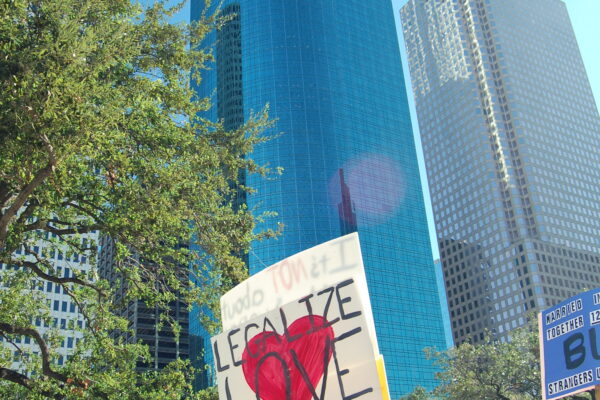Hot on the heels of Governor Abbott’s disingenuous lead, last Sunday Texas Attorney General Ken Paxton issued a statement regarding the Supreme Court’s ruling in Obergefell v. Hodges that is functionally incoherent, willfully misleading, and legally wrong. Were this merely more bluster from an extremist state official unsettled by Friday’s happy turn in the course of American history, we could comfortably ignore him. However, Paxton’s recklessness could lead to ruinous consequences for public officials who might heed his bad advice. For now, it appears as though they will not.
According to Paxton, county clerks in Texas may refuse to issue marriage licenses to same-sex couples—and judges and justices of the peace may refuse to conduct marriage ceremonies—if doing so would violate their sincerely held religious beliefs. To support that position, Paxton surgically excises the one line in the Obergefell ruling that—at a first and very perfunctory glance—seems to give him cover: “It must be emphasized that religions, and those who adhere to religious doctrines, may continue to advocate with utmost, sincere conviction that, by divine precepts, same-sex marriage should not be condoned.”
Of course, that’s not all the ruling says; that’s not even all that particular paragraph of the ruling says, and Paxton seems to place all his hopes in the possibility that we might not bother to read the rest: “The Constitution, however, does not permit the State to bar same-sex couples from marriage on the same terms as accorded to couples of the opposite sex.” In other words, Americans everywhere still enjoy their fundamental and inviolable right to religious liberty, and may exercise that right to express objections to same-sex marriages as loudly and as often as they like. The first duty of those who serve the State, however—including county clerks, judges, and justices of the peace—is to uphold the law.
And Obergefell is the law.
Paxton’s willful misreading of the Obergefell decision allows him to manufacture a “fundamental dilemma” and a “tension” between the right to equal protection and the right to religious freedom, and then uses that specious analysis to provide clerks and judges with irresponsibly erroneous legal advice. Paxton informs local officials that they may shirk their duties, admits that doing so exposes them to civil litigation, but promises that legions of attorneys stand ready to defend them should they choose to go the distance in the courts.
What Paxton fails to say is that that distance will be both very short and very costly, once those cases are inevitably lost and damages are due. State officials might briefly take comfort in the fact that the Attorney General will do “everything [he] can” to be a “public voice” for those involved in litigation, at least until they realize that Paxton has set them up to stand in front of a target his own office will skillfully avoid.
Thus far, few have been duped by Paxton’s bombast. Legal analysts are seeing the Attorney General’s statement for the untenable temper tantrum that it is, and for the most part local officials have decided to uphold the law, even over their own personal objections. In fact, most Texas counties are doing the right thing, and we are confident that the rest will inevitably understand where their duty lies.
But we’re still in the early days of post-Obergefell America, and Texas state officials have made it clear that they will continue to use trumped-up religious freedom arguments to sustain their own anti-LGBT bigotry. Ultimately they will fail. Texans have already made it quite clear that they don’t share Abbott’s and Paxton’s appetite for discrimination, and we are smart enough to know that religious liberty and human equality need never be at odds with one another.
Our Constitution is big enough for everyone.

